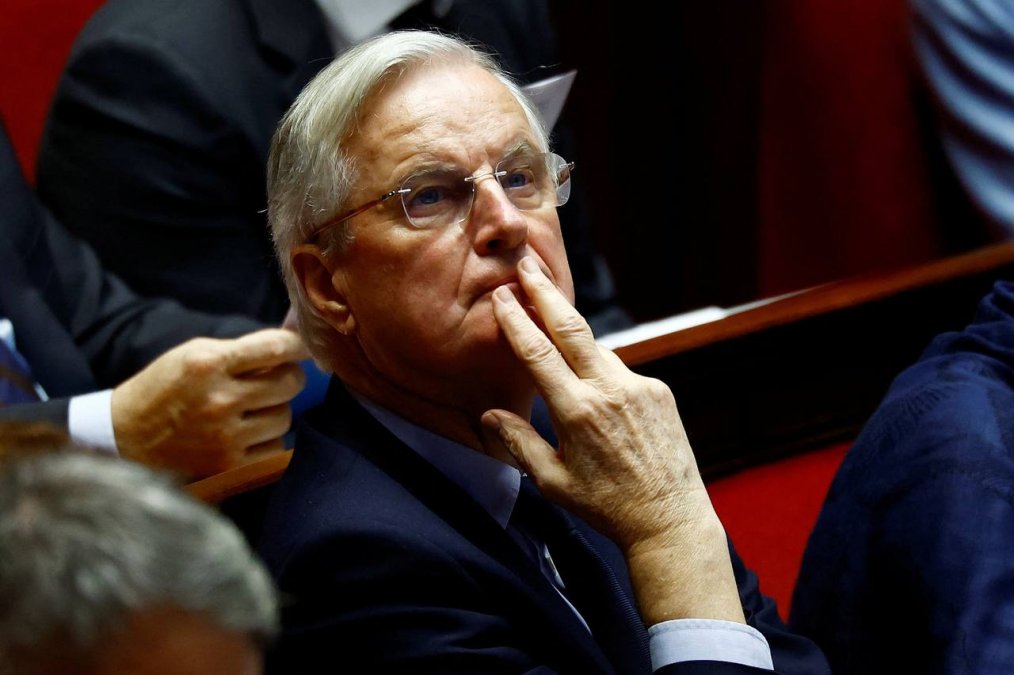Paris on the Edge
Paris on the Edge
The Barnier government was impeached by the National Assembly, and France’s crisis may become a problem for the entire European Union. Just two months after the formation of the French government, it fell over the budget bill, and only a few weeks after Germany’s political crisis, it opened the doors to another political crisis in Europe.
As widely announced in recent days, Parliament passed a no-confidence motion against Prime Minister and former European negotiator Michel Barnier. Those who ended his government were jointly the National Rally (RN) movement led by Marine Le Pen and the left-wing parties united in the Nouveau Front Populaire. These parties, like the right-wing extremists, opposed the 2025 financial plan.
The fate of the government seemed clear from the moment the Prime Minister invoked Article 49.3 of the constitution to reduce the terrible public budget deficit and in an attempt to overcome parliamentary opposition.
This article allows the government to pass laws without needing a vote in the assembly unless a no-confidence motion is presented within the next 24 hours.
Towards a Debt Crisis
Michel Barnier, 73, appointed as Prime Minister at Matignon in early September, received a clear mission from the Élysée: to reduce France’s massive public debt and prevent the risk of a financial crisis for the second-largest economy in the Eurozone. The plan included cutting expenses by 40 billion euros and increasing taxes by 20 billion euros.
However, his efforts, like the concessions he offered to right-wing extremists on taxes, electricity, and healthcare, failed against the red lines drawn by Marine Le Pen.
Ultimately, the Prime Minister succumbed to the demand of the RN National Rally leader to withdraw the temporary suspension of pension reform.
As the former EU Commissioner stated, the French will not forgive us for prioritizing specific interests over the nation’s future. The no-confidence vote shook the markets, with French securities today equating to Greek securities, and the interest rate gap with Germany reaching the 2012 crisis level. The economic world is worried about France’s stability.
What happens now?
With 89 days in office, the Barnier government will be remembered as the shortest in the history of the Fifth French Republic and the first government to fall due to a no-confidence vote since Georges Pompidou’s government in 1962. Now, according to the constitution, the president cannot hold new elections before next July. Therefore, Emmanuel Macron is currently looking for a new Prime Minister who can extend the budget and possibly last until next summer.
In this unprecedented situation, the Élysée president is trying to present himself as a pillar of stability, downplaying predictions that a financial storm might engulf France, and urging the media not to scare the public. ‘We have a strong economy,’ he said. ‘France is a resilient country that has implemented and maintained many reforms, a country with stable institutions and a solid constitution.’ In response to reporters’ questions about whether he is considering resigning before the end of his presidential term in 2027 to break the deadlock, he firmly stated that this is a political fantasy.
Now, with the fall of the French government and the ensuing economic crisis, many questions arise about the future of the country and the European Union. A new Prime Minister, or possibly an interim government, must be formed to manage the economic situation, but political instability could reduce confidence in France and negatively impact financial markets and the Eurozone economy. There is also the looming threat of increased debt and a financial crisis, especially given the deep political divides within the country. Under these circumstances, the European Union and other member countries will likely monitor France’s situation more closely to prevent the crisis from spreading.
Europe’s Perfect Storm
Without a government, with an uncertain budget and an economy under pressure, France’s crisis may have serious consequences for the entire European Union. Barnier, who was supposed to bring France back to financial discipline, was a guarantee for Brussels. His government’s fall could jeopardize the stability of the Eurozone, but the issue goes beyond this.
The political crisis in France, coupled with uncertainty in Germany—which is grappling with deep economic problems and is in the midst of election campaigns—draws Europe into uncharted waters. The crises in Berlin and Paris have paralyzed Brussels, condemning it to inertia both domestically and in foreign policy. The Franco-German engine has stalled just when the continent is called to face a series of worrying challenges: the war in Ukraine and the Middle East, and in January, Donald Trump’s return to the White House. All these scenarios require a strong and united European Union, exactly the opposite of what it seems today.
Michel Barnier steps down as the shortest-serving Prime Minister in French history. He had managed to reach an agreement in the tough negotiations between the European Union and Britain, but at home, he faced an impossible mission. Marine Le Pen, along with the leftists, did not support him and, unwilling to take responsibility for public budget cuts, led to his government’s fall. It doesn’t matter that the markets continue to penalize France.
This is very bad news for Europe because another major country, Germany, is also heading for early elections.
Europe’s engine has stopped, and no one seems to know how to fix it, while Trump is revving up his engines across the ocean, and conflicts in the south and east continue. Europe is at risk of appearing weaker than ever in the eyes of the world.

